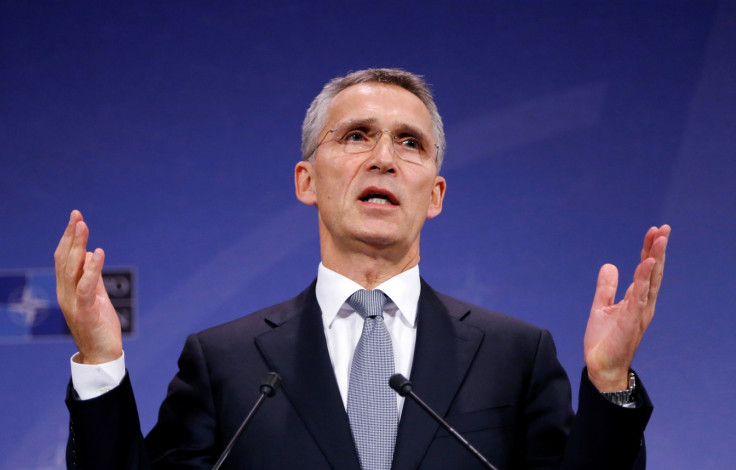Additional 4,000 troop deployment near Russian border is to prevent, not provoke conflict: Nato chief
Jens Stoltenberg insisted that the alliance does not see any imminent threat from Russia.
Russia is not a threat and the alliance does not want a cold war with the country, the head of the North Atlantic Treaty Organization (Nato) said amid escalating tensions between Moscow and other western powers. Jens Stoltenberg insisted that the planned deployment of additional 4,000 troops in Eastern Europe was to prevent conflict and not to provoke any.
In an interview to the BBC, the Nato secretary-general added that the alliance aims to "strive for a more co-operative and constructive relationship" in the region and to avoid any actions that may lead to clashes. "But we have to do that based on collective defence – deterrence," he noted.
Russia, led by President Vladimir Putin, had invited the ire of some western countries, including the US, following its annexation of neighbouring Crimea in 2014. The US and the European Union imposed many sanctions on Russia following the annexation. Of late, Russia is again at odds with the US and its allies who are assisting moderate Syrian rebels to drive out Islamic State (Isis) from Syria.
On the other side, Russia is helping the Syrian government to reclaim power in the country by fighting all the rebel groups. The US has accused Russia of fuelling the crisis in Syria and hurting civilians in air bombings.
Amid these tensions, Nato announced two days ago that it will send 4,000 more troops to be stationed in the Baltics and eastern Europe to beef up security in the region as about 330,000 Russian troops are believed to be stationed on its western border near Moscow.
Stoltenberg told the BBC that multinational Nato battalions comprising 1,000 troops each will be deployed to Poland, Estonia, Latvia, Lithuania in early 2017. They will be led by the US, Britain, Canada and Germany.
The Nato chief further said that they do not see any imminent threat from Russia, but was only responding to the country's actions in Ukraine.

© Copyright IBTimes 2025. All rights reserved.





















